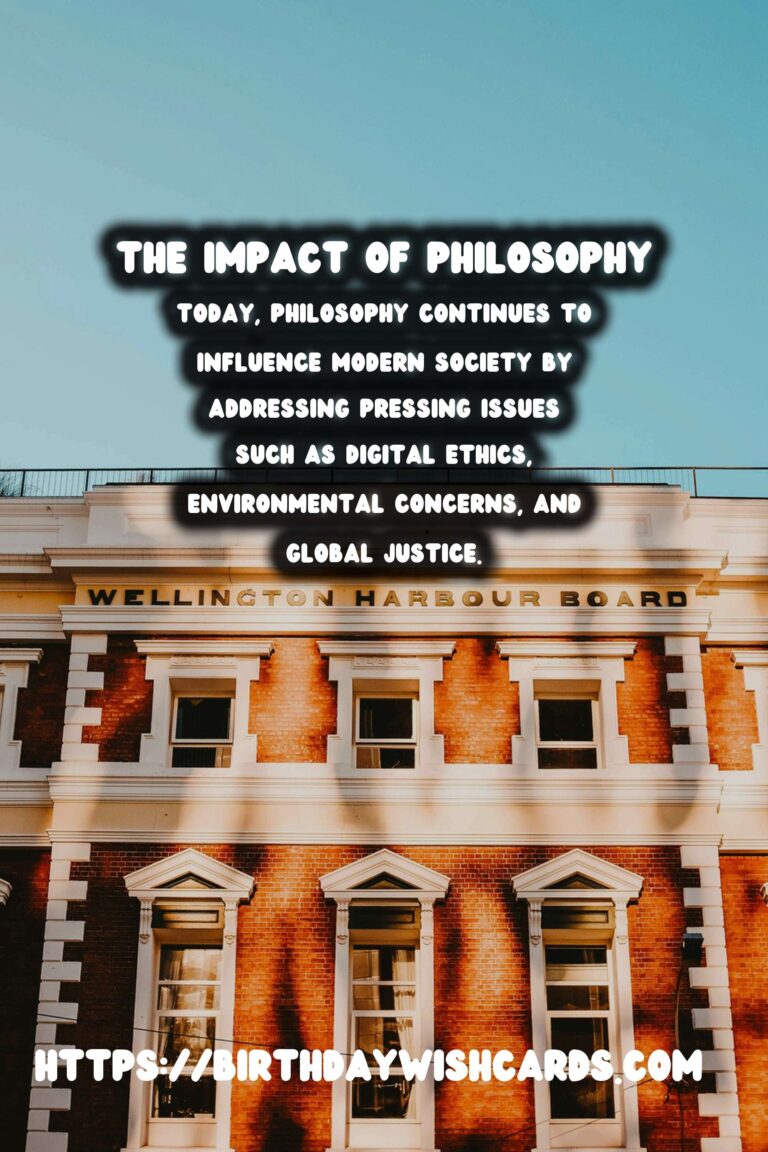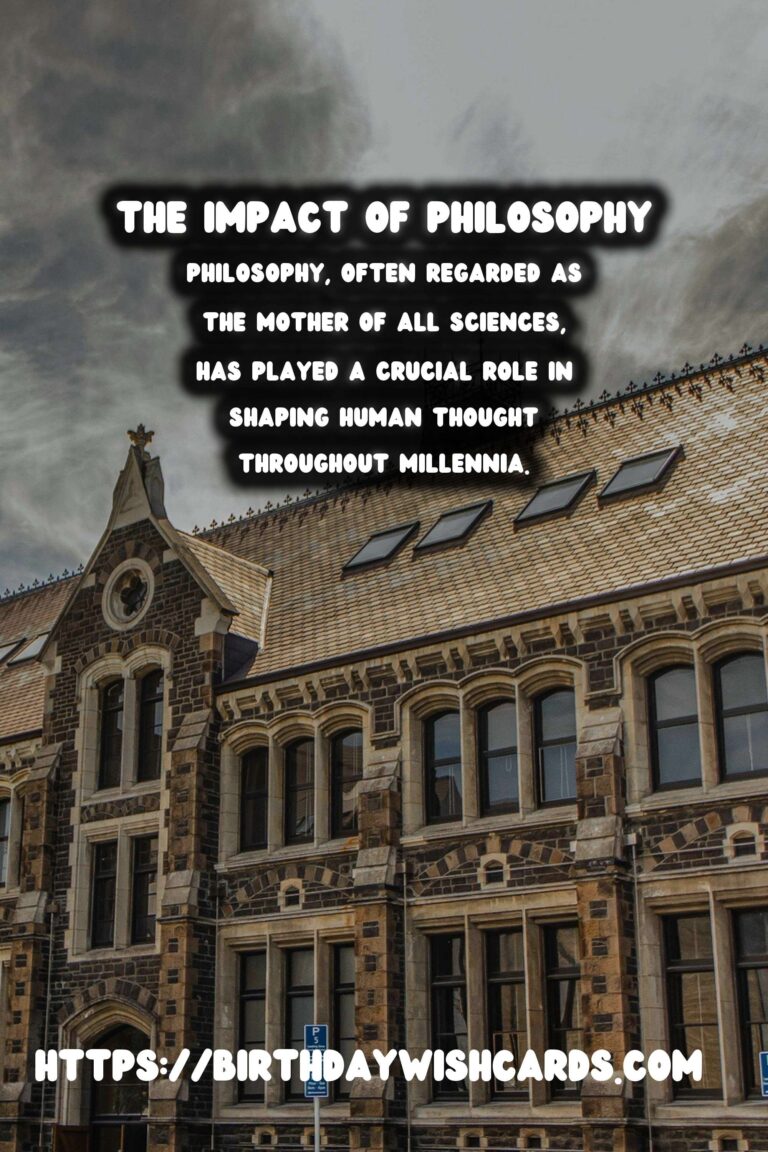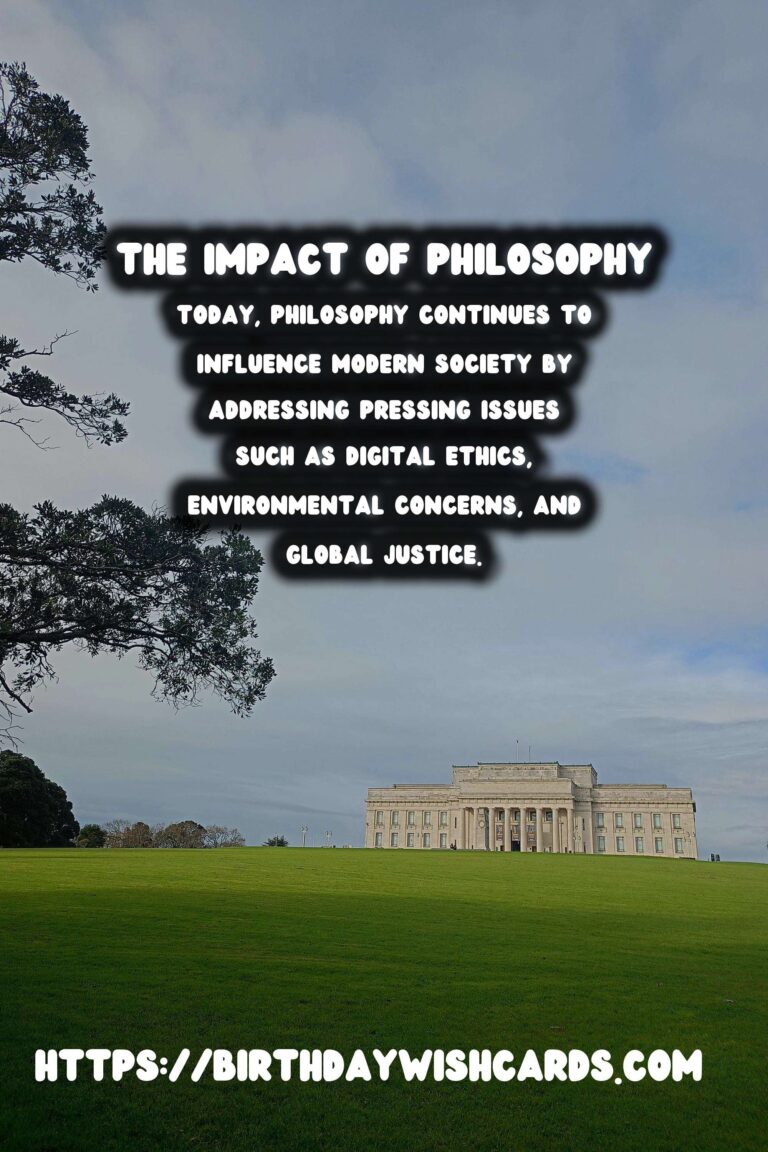
Philosophy, often regarded as the mother of all sciences, has played a crucial role in shaping human thought throughout millennia. Starting from the ancient Greeks to the contemporary philosophers of today, the evolution of philosophical thought has continuously influenced diverse facets of society.
Ancient Philosophy: Foundations of Thought
The ancient period marked the dawn of Western philosophy, with notable figures like Socrates, Plato, and Aristotle laying the groundwork for logical reasoning and ethical inquiry. Socrates, with his Socratic method, established a dialectical approach to exploring philosophical questions.
Plato’s idealism and his theory of forms challenged the reality of the physical world, advocating for a realm of eternal truths. Aristotle’s empirical methodology paved the way for scientific exploration, influencing future generations of philosophers.
Medieval Philosophy: Bridging Faith and Reason
During the medieval period, philosophy was predominantly intertwined with religion. Thinkers like Augustine and Thomas Aquinas endeavored to reconcile Christian doctrine with classical philosophy. This era was marked by scholasticism, which attempted to use reason to understand the divine.
The synthesis of faith and reason during this period helped solidify ethical and moral codes that would influence Western culture and jurisprudence.
Renaissance and Enlightenment: Dawn of Modernity
The Renaissance and Enlightenment periods witnessed a revitalization of classical knowledge and a shift towards humanism. The focus moved from divine to human concerns. Philosophers like Descartes, Kant, and Locke encouraged skepticism and empiricism.
Rationalism and individualism flourished, inspiring democratic principles and scientific advancements. Locke’s theories on knowledge and governance fueled modern political thought, underscoring the value of liberty and the social contract.
19th to 20th Century Philosophy: Ideologies and Critique
The 19th and early 20th centuries introduced diverse philosophical movements such as existentialism, Marxism, and pragmatism. Karl Marx’s analysis of capitalism predicted socioeconomic structures, influencing political ideologies globally.
Existentialists like Sartre and Camus explored the absurdity of existence, while pragmatists like Dewey focused on practical consequences and human experience. These ideas paved the way for contemporary debates on identity, freedom, and morality.
Contemporary Philosophy and Its Societal Impact
Today, philosophy continues to influence modern society by addressing pressing issues such as digital ethics, environmental concerns, and global justice. Philosophical discourse fosters critical thinking and ethical considerations in technology and globalization.
The limelight on bioethics, artificial intelligence, and postcolonial studies reflects philosophy’s ongoing relevance. Modern philosophers draw from centuries of thought, ensuring that philosophical inquiry remains an essential tool for societal advancement.
In essence, the history of philosophy is not just an academic subject but a vital contributor to shaping the cultural, political, and ethical landscape of modern society.
Philosophy, often regarded as the mother of all sciences, has played a crucial role in shaping human thought throughout millennia. Today, philosophy continues to influence modern society by addressing pressing issues such as digital ethics, environmental concerns, and global justice. 









#Philosophy #ModernSociety




